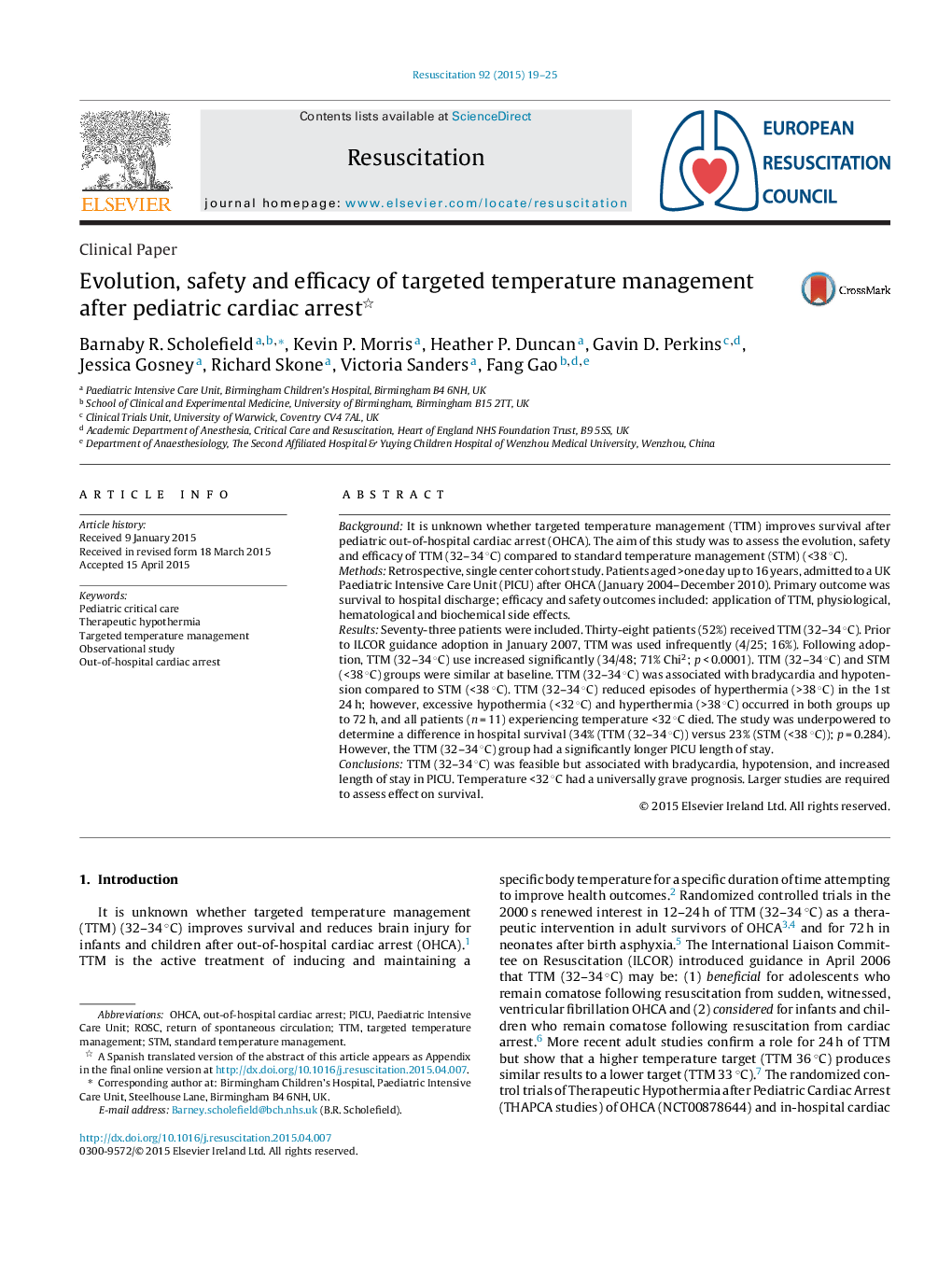| کد مقاله | کد نشریه | سال انتشار | مقاله انگلیسی | نسخه تمام متن |
|---|---|---|---|---|
| 5997796 | 1578992 | 2015 | 7 صفحه PDF | دانلود رایگان |

BackgroundIt is unknown whether targeted temperature management (TTM) improves survival after pediatric out-of-hospital cardiac arrest (OHCA). The aim of this study was to assess the evolution, safety and efficacy of TTM (32-34 °C) compared to standard temperature management (STM) (<38 °C).MethodsRetrospective, single center cohort study. Patients aged >one day up to 16 years, admitted to a UK Paediatric Intensive Care Unit (PICU) after OHCA (January 2004-December 2010). Primary outcome was survival to hospital discharge; efficacy and safety outcomes included: application of TTM, physiological, hematological and biochemical side effects.ResultsSeventy-three patients were included. Thirty-eight patients (52%) received TTM (32-34 °C). Prior to ILCOR guidance adoption in January 2007, TTM was used infrequently (4/25; 16%). Following adoption, TTM (32-34 °C) use increased significantly (34/48; 71% Chi2; p < 0.0001). TTM (32-34 °C) and STM (<38 °C) groups were similar at baseline. TTM (32-34 °C) was associated with bradycardia and hypotension compared to STM (<38 °C). TTM (32-34 °C) reduced episodes of hyperthermia (>38 °C) in the 1st 24 h; however, excessive hypothermia (<32 °C) and hyperthermia (>38 °C) occurred in both groups up to 72 h, and all patients (n = 11) experiencing temperature <32 °C died. The study was underpowered to determine a difference in hospital survival (34% (TTM (32-34 °C)) versus 23% (STM (<38 °C)); p = 0.284). However, the TTM (32-34 °C) group had a significantly longer PICU length of stay.ConclusionsTTM (32-34 °C) was feasible but associated with bradycardia, hypotension, and increased length of stay in PICU. Temperature <32 °C had a universally grave prognosis. Larger studies are required to assess effect on survival.
Journal: Resuscitation - Volume 92, July 2015, Pages 19-25